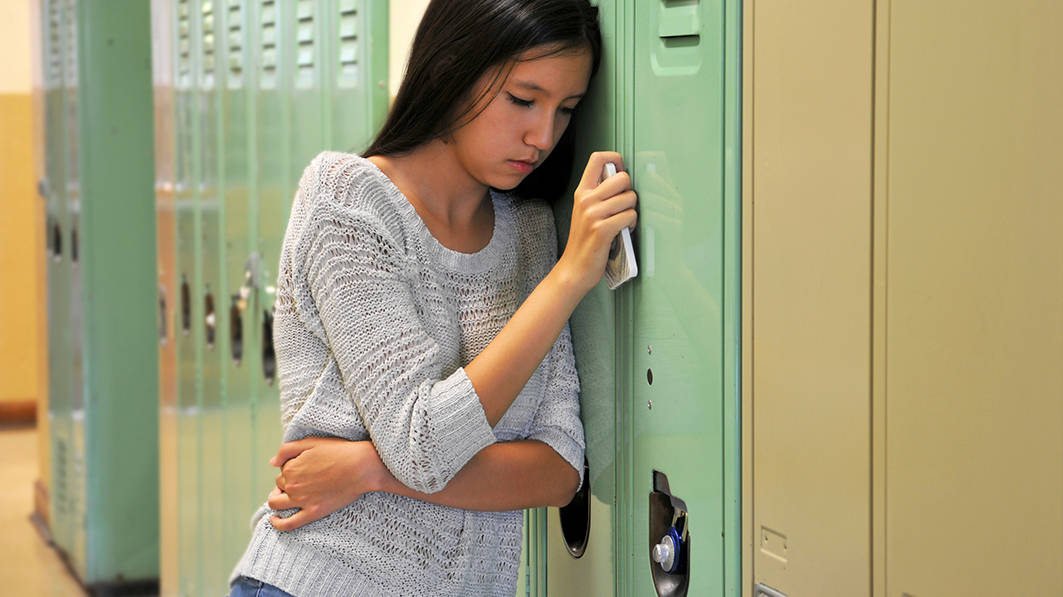Are television programs a good way for families to talk about difficult subjects? What if the TV program in question is “13 Reasons Why,” a show known for its graphic presentation of topics like suicide and sexual assault?
As the second season of the popular Netflix drama arrives, many parents are wondering again if “13 Reasons Why” is worth welcoming into their homes. Are the conversation opportunities really worth the gritty themes and graphic imagery?
The program certainly gets people talking. According to research from Northwestern University, season one of “13 Reasons Why” contributed significantly to increased conversations on difficult topics such as sexual assault, depression and suicide. Of parents who watched the show with their kids, 56 percent said it helped them start conversations about tough topics, although many of those parents wished they’d had more expert information to better navigate those topics.
Researchers also found that the show helped raise awareness of the impact of bullying and other hurtful behaviors. Of 5,000 teens, young adults and parents from around the world who’d seen the show, 80 percent reported that the drama helped them better understand the ripple effect of hurtful behavior, while 51 percent said they were encouraged to apologize to someone who’d they hurt.
So while “13 Reasons Why” may have prompted more families to talk about difficult subjects — and even helped teens recognize their own hurtful behaviors — the drama is still a television program designed to entertain rather than educate. It’s one thing to talk about a topic, and quite another to engage in wise, productive conversations.
As parents, we should of course approach all entertainment with discernment, but especially with films and programs that romanticize suicide. News reports have suggested there may be a link between some recent teen suicides and “13 Reasons Why.” Teens suffering from mental illness, desperate to be noticed and appreciated, may become preoccupied with the “I’ll show them” fantasy of compelling peers to regret how they behaved.
Second chapter, dark as the first
Season two of “13 Reasons Why” reveals more of Hannah, the main character who has taken her own life, and her peers, who continue to grapple with the aftermath of her death. Like Hannah, these characters struggle with the consequences of bullying, assault and other destructive relationship dynamics.
Sadly, these are topics that parents of teens do need to be aware of. Many teens say the high school environment portrayed in “13 Reasons Why” is accurate, that the issues raised in the show are real. But parents are right to wonder if there isn’t a better way to initiate these conversations than the graphic imagery of this television show.
Where hope is
No television program can substitute for the foundation of a family and intentional conversations with parents. Can we develop a family culture that doesn’t shy away from tough conversations regarding assault, suicide, sexting, self-injury, violence and other difficult topics? These aren’t typical dinnertime or hiking subjects, but it is important to help our kids develop the skills necessary to face these topics, to get the support they need and to develop a healthy, personalized worldview that helps them better understand a fallen world.
A worldview not rooted in the redemption found in Jesus leaves the messaging dark, empty and hopeless. But the Christian worldview helps kids see these topics through a filter of hope, restoration and reconciliation. As parents, we get to choose which of these worldviews is dominant in our homes. We must always ask ourselves: Is the world dictating the culture of our home, or can parents establish it?
As Christians, we are instructed to guard our minds, to keep them “prepared for action” (1 Peter 1:13). And there is so much that kids need to guard against. The media and entertainment worlds create a traffic jam of voices speaking into our minds. We need to help our young people develop an ability to sort through these different voices, giving them a “media intelligence” that helps them recognize when media is beneficial and when it is destructive. We must help our kids recognize that what they see and hear really can change them, in the same way that what they eat and drink can change them.
Developing media intelligence
How do we begin? The following are the basic themes and practices that will help you begin to cultivate media intelligence in your home:
Know the mind. Read Romans 12:2 together and talk about how this applies to entertainment and social media. Ask: “What would it look like in our family if we were committed to avoiding conformity with the world? What does it mean to have our mind ‘renewed’?” As you discuss these questions, develop a set of media standards that you agree to live by. Put this media commitment in writing so that you can always refer to it.
Look for positive content. Read Philippians 4:8 together and discuss how these concepts apply to a media-saturated culture where our thoughts and feelings are so often influenced by what we watch and listen to. Ask: “How can we find and enjoy media sources that reinforce positive and noble characteristics?”
Seek to understand. Kids won’t always want to enjoy positive entertainment. Be a constant student of your children, learning what influences in their lives are affecting the media they want to consume. Always ask yourself: Why do my kids want to watch this show? Why do they want to see this movie or buy this music?
Explain limits. Kids need to understand the reasons for the boundaries you set. So as you set consistent limits on media, help them understand the “why” behind these limits. This starts with understanding your own reasons for these boundaries. Are they just because of fear or are they building toward a goal of discernment and wisdom? Do your kids share your perspective on what is positive entertainment? Why do disagree? Talk through these boundaries. Listen carefully to the “whys” of their own developing discernment.
If possible, watch together. If you choose to allow your kids to watch shows that may have problematic content, watch them together. This way you’ll understand what they have consumed and can be better prepared to discuss the specific issues. Be present to have conversations about what is brought up by the show. If you do decide to watch “13 Reasons Why,” refer to Focus on the Family’s Parent’s Guide to 13 Reasons Why.
Avoid binges. Binge-watching can create addiction, moodiness and feelings of dissatisfaction once everything is over. This style of viewing is not good for the brain.
Stay informed. Read the Plugged In reviews about the latest music, video games, books, TV shows movies. This will help you make informed decisions about media choices.
Facing hard topics together
Here are some basic principles to remember when talking to your kids about difficult topics:
Pray as you prepare. Prayer is an essential component to Christian parenting, and a necessary component for starting to discuss difficult topics with your child. Seek God’s wisdom and discernment as you begin these conversations with your child.
Listen and observe. Your kids want to be heard. They want you to truly understand what they are seeing and feeling. Try to discover what your kids are experiencing. These emotions have a tremendous influence on how they interpret and interact with their world.
Learn. It is best if you know what is truly happening in your child’s surroundings at school and in your city. Talk with other parents, teachers, pastors and local leaders. Research how sexual assault, suicide, depression, cutting, bullying, revenge and sexting are affecting your community.
Fear not. Yes, these topics can get messy. The conversations may be awkward or imperfect, and may not go as planned. This is to be expected. Focus on facing these challenges together, offering support and guidance to your kids as you discuss tough topics.
Guide with grace and patience. Your kids will need your grace as you engage discuss the details of their world. Be patient. They may not always seem appreciative, but God has called you into this role to guide and love — and real love doesn’t always mean your child is happy. This is a journey, and sometimes it will be difficult, but you are blessed to be on this journey with your child.
Be consistent and available. Commit to carving out time for intentional conversations. The conversations may be spontaneous or may need some prompting, but either way, make sure you’re not too busy or distracted for connection.




















